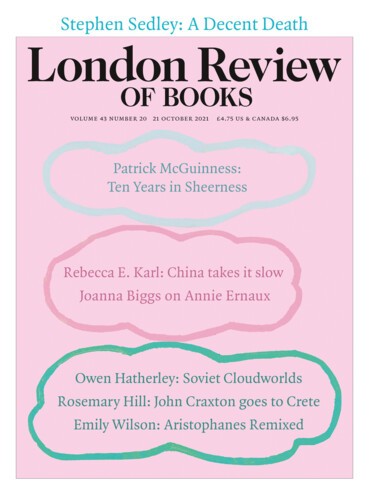On Friday, 27 September, we felt the whole of Beirut shake. A huge plume of smoke was visible across the city. Israeli jets had dropped more than eighty bombs, flattening six apartment buildings in Haret Hreik without warning. Their target was one man. The rest of the still uncounted dead – many hundreds incinerated – were collateral damage.
Stefan Tarnowski
Stefan Tarnowski is an early-career research fellow at Corpus Christi College, Cambridge, and a postdoctoral researcher on the ‘Views of Violence’ project at the University of Copenhagen.
In the summer of 2019, I took part in an investigation by the Syrian Archive into attacks on medical facilities in Syria, described by the Lancet in 2017 as ‘the most dangerous place on earth for healthcare providers’. The Syrian Archive verified 410 incidents of hospital bombings, and identified with confidence the perpetrators of 252 attacks. Ninety per cent of those were acts of aerial bombardment by Assad’s forces and their allies, in particular the Russian air force. Systematically targeting hospitals was one of their most ruthless tactics, a means to depopulate opposition areas.
Since 2014, I’ve done fieldwork with Syrians who live in the Beqaa Valley, forcibly displaced by Assad’s forces and their allies. When they describe their experiences at the hands of Hizbullah, it’s as brutal as anything committed by an invading army waging a war of aggression: siege, bombardment, massacre, rape. The continuity of the term ‘resistance’ in the museum display at Baalbek is the record of an old word dying.
Last month, shooting began in Damascus on a film produced by Jackie Chan, using the destroyed suburb of Hajar al-Aswad as a backdrop. On the first day on set, the director, Song Yinxi, was accompanied by the Chinese ambassador to Syria. Flanked by men in military fatigues and a style of Arab dress that looked ever so slightly out of place, a banner in CCP red and gold was hung from a tank turret. ‘Peace and Love,’ it said.
Diary: In Lebanon
Stefan Tarnowski, 21 October 2021
In June, there was a debate in our building about whether to rayyih al-moteur (‘rest the generator’) at night or during the day. We had electricity from the national grid for only one hour in 24. In July, the only way to cool down in the afternoon was to strip off and lie sweating on the apartment’s terrazzo floor. By August, diesel shortages meant that not even the rich...
Read anywhere with the London Review of Books app, available now from the App Store for Apple devices, Google Play for Android devices and Amazon for your Kindle Fire.
Sign up to our newsletter
For highlights from the latest issue, our archive and the blog, as well as news, events and exclusive promotions.


